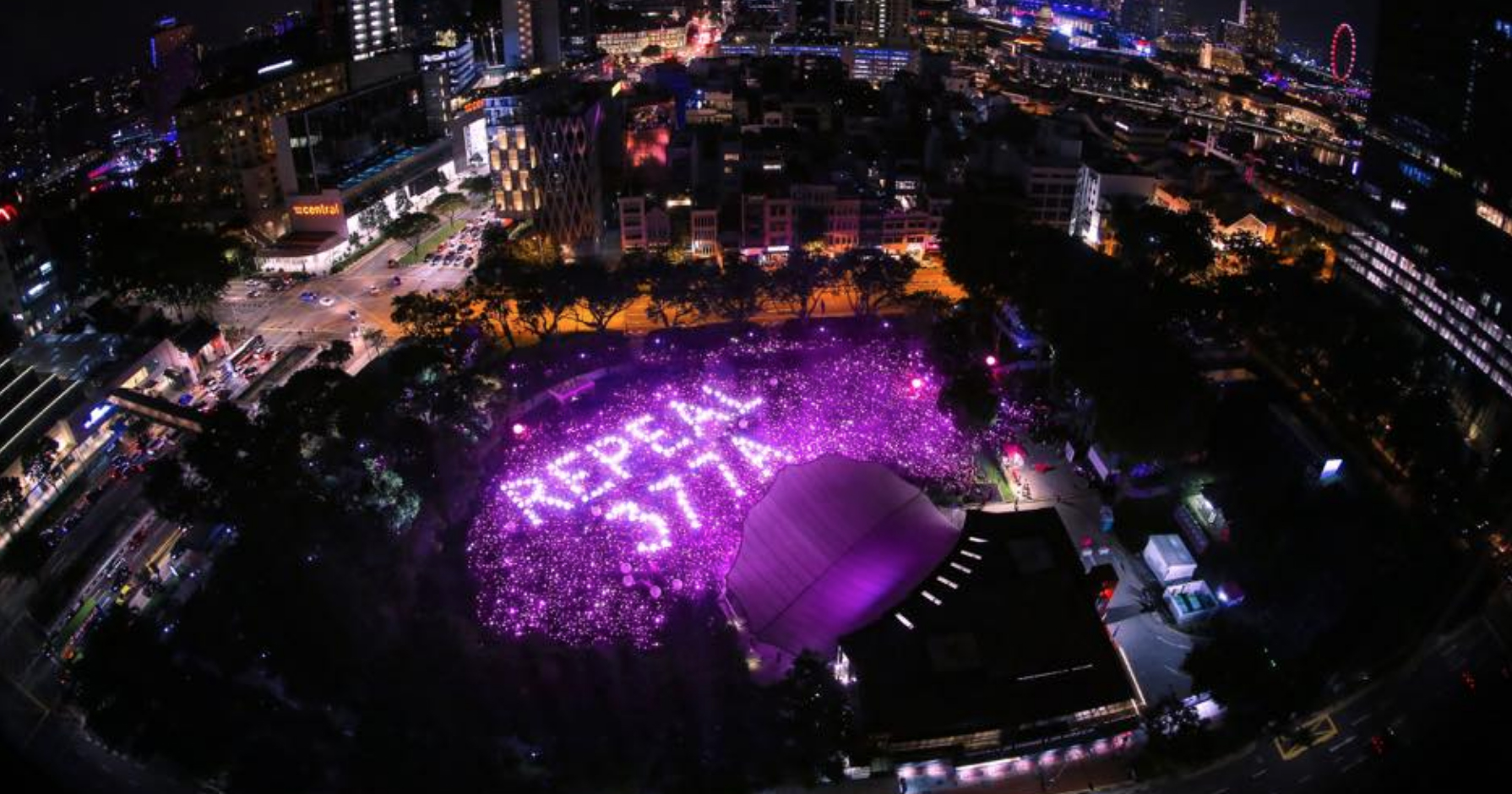The hearings for the challenges to Section 377A concluded on Wednesday (Nov. 20), with the Attorney-General's Chambers (AGC) submitting its 124-page submissions arguing against its repeal.
But first, what's going on?
In the past week, three different men took to the High Court to challenge Section 377A, which criminalises sex between men.
All three claimed that the law is unconstitutional and goes against the fundamental freedoms of people (especially gay men) living in Singapore.
The three men are:
- Johnson Ong Ming, 43-year-old DJ and producer
- Roy Tan Seng Kee, 61-year-old retired general practitioner
- Bryan Choong Chee Hoong, 42-year-old former executive director of LGBT non-profit organisation Oogachaga
Arguments put up for the repeal
Over the course of the week, there were several different arguments put forth by the three men and their legal teams.
For example, Choong's team argued that Section 377A is inconsistent with Singapore's context today, because it was introduced to curb colonial-era male prostitution.
Ong's team argued that Section 377A criminalises gay men for what is essentially their identity, because homosexuality is not a choice; it results from biological causes.
Tan's lawyer claimed that having this law on the books is "absurd", because while the government has said that it will not proactively enforce Section 377A, the police is still legally obligated to investigate when it is invoked.
AGC argues against repeal
The lawyers representing AGC were:
- Deputy Chief Counsel of litigation, transactions and administration Hui Choon Kuen
- Deputy Senior State Counsel Jeremy Yeo
- Executive Director at the AGC Academy Denise Wong
- State Counsel Jamie Pang.
The team said that the Court of Appeal -- the highest court in Singapore -- previously ruled in 2014 that Section 377A is consistent with the Constitution of Singapore.
Therefore, the High Court has to follow the Court of Appeal's decision and dismiss the challenges.
AGC also put forth some other key points, summarised below:
1. Parliament should decide on repeal, not courts
According to AGC, this "deeply divisive socio-political issue" should be handled by Parliament and not the court.
The role of the latter is to apply the law and not determine social policy, reported The Straits Times.
Parliament is better equipped to deal with socio-political matters because, unlike the courts, it can take into account information such as public sentiment.
ST also noted that in other jurisdictions like Britain and Hong Kong, the abolishing of similar laws to Section 377A was done by the legislature.
AGC said:
"Whether or not to repeal Section 377A on policy grounds is an extremely difficult issue but, with all due respect to the Judiciary, it is a problem that constitutionally belongs to the Legislature and not the Judiciary."
Responding to claims that Section 377A serves no legitimate purpose, AGC said that the existence of this law is to send a "moral signal" regardless of whether and how it is enforced, reported CNA.
2. Sexual identity not a right under Singapore Constitution
In September 2018, the Indian Supreme Court ruled that gay sex is no longer a criminal offence.
But AGC argued that it is irrelevant as Singapore has different laws.
According to them, the Singapore Constitution does not accord rights to human dignity, sexual identity, or privacy.
It is an offence to discriminate against someone on the basis of religion or race under the Singapore Constitution, but nowhere does it prohibit discrimination based on gender, sex, and sexual orientation.
This is different from "concrete rights" such as religion, free speech, and freedom of movement which are accorded within the context of larger interests such as public order and security, said AGC.
The court is expected to deliver its ruling on the challenges in 2020.
Our previous coverage on the 377A challenges:
Top image via Pink Dot/Facebook
If you like what you read, follow us on Facebook, Instagram, Twitter and Telegram to get the latest updates.
